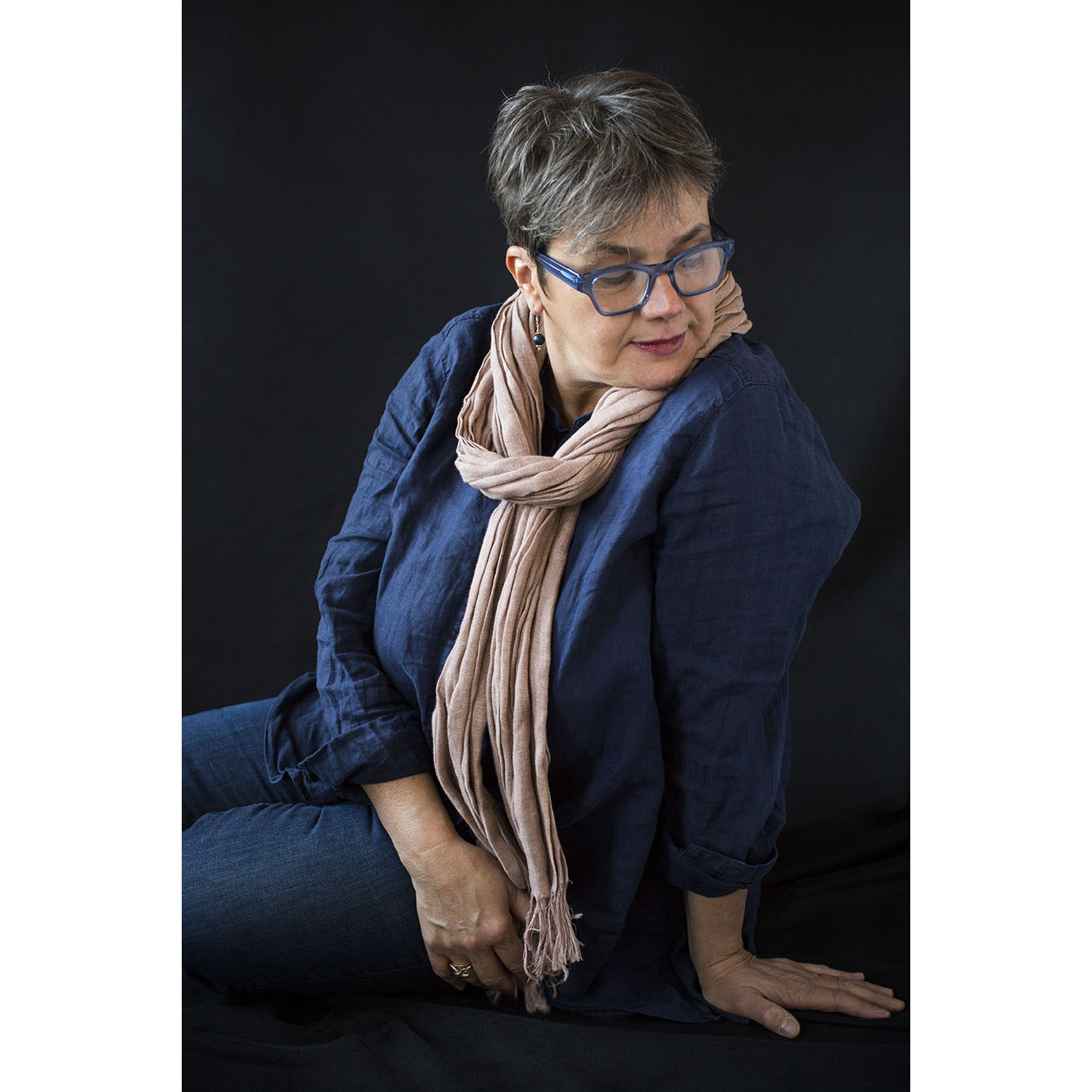Catrine Kelty, Massachusetts
Portrait by Lori Pedrick
Late Bloomer
I was a late bloomer. I lagged behind, trying to catch up to my friends who were entering puberty. While they were going through this new world, leaving childhood to enter the teenage phase of life, I watched … and I learned.
My mother recently reminded me (with a chuckle) of my first boy/girl party in middle school. I must have been 13, coming home early from that party huffing and puffing, miserable and angry. When asked “why such an early return?” and “why the long face?” My explanation was simple: we had started playing spin the bottle and what was the point of being there!!! There was nothing! No curves, no incentive for a boy wanting to kiss me! That had my parents smiling and shaking their heads.
I remember sitting in that basement, all of us in a circle, cozy on the soft rug, the lights dimmed, the excitement, the hormones raging, the bottle spinning, spinning and … the horror on the boy’s face I had a crush on. I was certain he was willing the bottle not to land on me. I saw the relief in his eyes when it pointed to my pretty voluptuous friend who I had been asked to bring to the party and who was sitting right next to me. Enough!, I thought. This game is stupid! I got up, wrapped myself in a cloak of outrage and dignity, left the party and proceeded to walk all the way home.
This was the start of my teenage years. Far from being lonely, I had a huge circle of friends and a big social life. The girls loved me since I was no threat and I was every boy’s “little sister.” With so many friends around I still felt I was always on the outside looking in. I was the one with no boyfriend, the secret keeper, the confidante, knowing all the goings-on but never participating. It made me an observer. Why were girls so silly? I would never sacrifice myself to the altar of some boy’s masculinity! Why couldn’t those boys see past a pretty face and a couple of curves? All this knowledge made me want to transcend my body, for the world to see ME, not the envelope but the essence, the intelligence of what made me me.
The lack of the drama of an early love life made it easier for me to study and to take my education seriously. The more I saw my best friend worried about getting pregnant or loosing her boyfriend the happier I was to be on my own.
In my late teens I started reading the works of Maguerite Duras and Simone De Beauvoir. Reading The Second Sex (Le Deuxieme Sexe) was a revelation and justified my way of thinking. The idea that one is not born a woman but becomes one really appealed to me. For me, the message was about taking responsibility for who one can be, finding your place in the world, having access to freedom and liberating one’s self. These were ideas that were deeply rooted in my subconscious and I had finally found the words to express them.
Because my parents are immigrants (we moved from Paris to Montreal when I was 2), conversations about freedom and independence were a part of my childhood. Even in the “old world” of sexism where women and men have respective roles, I was taught to be true to my beliefs and convictions and not be afraid to voice my opinions. On one end my parents would tell me: why go to University? You will get married, have children; nobody needs a degree for that! And on the other saying: be brave, don’t let anybody intimidate you, speak your mind. I listened to the latter.
In retrospect, what I viewed as a curse in my teenage years really was my salvation and what shaped me. It’s not easy growing up girl and it’s not easy growing up boy. It’s not easy being human, learning to navigate relationships, understanding each other and the world around us. This human condition can sometimes be painful and devastating. It can also be wonderful and rewarding, full of love and connections. I am optimistic at heart and feel that the good always outweighs the bad … no matter what. Take it from a late bloomer.
— Catrine Kelty

